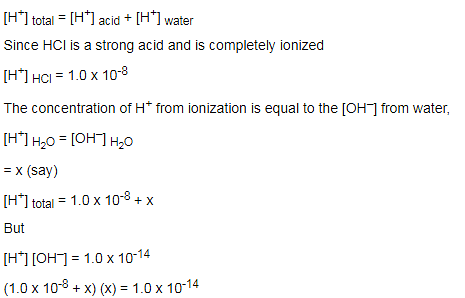NEET Exam > NEET Tests > Daily Test for NEET Preparation > Test: Ionization of Acids Bases and Water (July 30) - NEET MCQ
Test: Ionization of Acids Bases and Water (July 30) - NEET MCQ
Test Description
10 Questions MCQ Test Daily Test for NEET Preparation - Test: Ionization of Acids Bases and Water (July 30)
Test: Ionization of Acids Bases and Water (July 30) for NEET 2025 is part of Daily Test for NEET Preparation preparation. The Test: Ionization of Acids Bases and Water (July 30) questions and answers have been
prepared according to the NEET exam syllabus.The Test: Ionization of Acids Bases and Water (July 30) MCQs are made for NEET 2025 Exam. Find important
definitions, questions, notes, meanings, examples, exercises, MCQs and online tests for Test: Ionization of Acids Bases and Water (July 30) below.
Solutions of Test: Ionization of Acids Bases and Water (July 30) questions in English are available as part of our Daily Test for NEET Preparation for NEET & Test: Ionization of Acids Bases and Water (July 30) solutions in
Hindi for Daily Test for NEET Preparation course. Download more important topics, notes, lectures and mock
test series for NEET Exam by signing up for free. Attempt Test: Ionization of Acids Bases and Water (July 30) | 10 questions in 20 minutes | Mock test for NEET preparation | Free important questions MCQ to study Daily Test for NEET Preparation for NEET Exam | Download free PDF with solutions
Test: Ionization of Acids Bases and Water (July 30) - Question 1
Which of the following is more acidic? A solution with pH 5 or a solution with pH 3
Detailed Solution for Test: Ionization of Acids Bases and Water (July 30) - Question 1
Detailed Solution for Test: Ionization of Acids Bases and Water (July 30) - Question 2
Test: Ionization of Acids Bases and Water (July 30) - Question 3
Which one of the following is the approximate pH of 0.01 M solution of NaOH at 298 k?
Detailed Solution for Test: Ionization of Acids Bases and Water (July 30) - Question 3
Test: Ionization of Acids Bases and Water (July 30) - Question 4
A 0.10 M solution of a weak acid, HX, is 0.059% ionized. Evaluate Ka for the acid.
Detailed Solution for Test: Ionization of Acids Bases and Water (July 30) - Question 4
Test: Ionization of Acids Bases and Water (July 30) - Question 5
In a sample of pure water, only one of the following statements is always true at all conditions of temperature and pressure.
Detailed Solution for Test: Ionization of Acids Bases and Water (July 30) - Question 5
Test: Ionization of Acids Bases and Water (July 30) - Question 6
The pH of 10-8 molar solution of HCl in water is:
Detailed Solution for Test: Ionization of Acids Bases and Water (July 30) - Question 6
Test: Ionization of Acids Bases and Water (July 30) - Question 7
Which one of the following is correct for a solution in which [H+] = 10-8 M.
Test: Ionization of Acids Bases and Water (July 30) - Question 8
Which one of the following is a wrong derivation?
Detailed Solution for Test: Ionization of Acids Bases and Water (July 30) - Question 9
Test: Ionization of Acids Bases and Water (July 30) - Question 10
The pH of a 0.02 M solution of an unknown weak acid is 3.7. What is the pKa of this acid?
Detailed Solution for Test: Ionization of Acids Bases and Water (July 30) - Question 10
|
12 docs|366 tests
|
Information about Test: Ionization of Acids Bases and Water (July 30) Page
In this test you can find the Exam questions for Test: Ionization of Acids Bases and Water (July 30) solved & explained in the simplest way possible.
Besides giving Questions and answers for Test: Ionization of Acids Bases and Water (July 30), EduRev gives you an ample number of Online tests for practice























